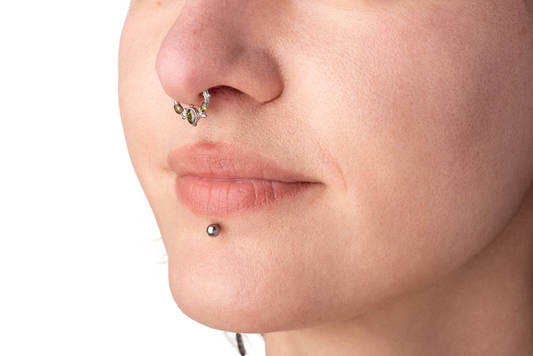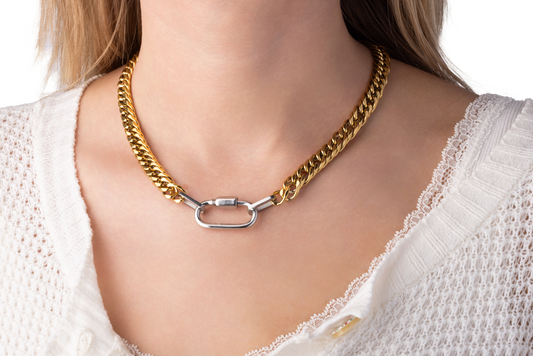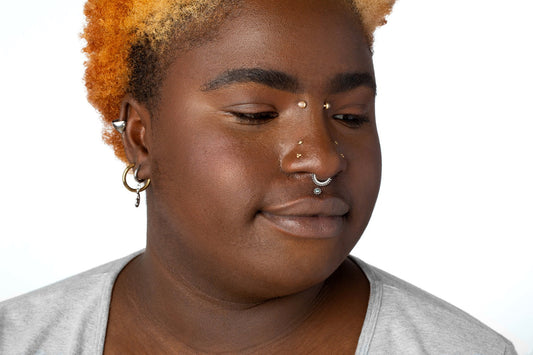Getting a new piercing is an exciting and often nerve-wracking experience. Whether it's your first piercing or an addition to your collection, leaving the piercing studio with the right knowledge is crucial for a smooth healing process and upkeeping a healthy piercing in the future. In this article, we'll explore the most important things to ask your piercer before stepping even one foot out of the studio to ensure a positive and trouble-free body modification journey.

1. Body Jewelry Size
One of the most crucial pieces of information to obtain before leaving the piercing studio is the size of your body jewelry. Different piercings require different lengths, diameters, and gauges. There is no standard in piercing, since different bodies require a range of sizes. Wearing jewelry that does not fit can lead to complications (like migration or irritation) and is simply uncomfortable to wear.
Furthermore, depending on the region of your new piercing, your piercer will typically use a larger piece of jewelry that allows for the skin to swell during the healing process. They should outline if and when your jewelry should be downsized to prevent problems with your piercing going forward.


2. Type of Threading
In addition to size, understanding the type of threading on your body jewelry is vital. The threading refers to how the jewelry is secured, and there are various types, including internally threaded and threadless. Each has its advantages and potential drawbacks.
Internally threaded: The threading is on the barbell itself and requires the jewelry to be twisted in place to secure. Internal threading provides a secure fastening mechanism, reducing the chances of the jewelry snagging on clothing or hair.

Threadless: This type of jewelry is designed with a push-fit system. It relies on tension to hold in place and does not have threading. Threadless jewelry is less prone to wear and tear and offers a range of customization since the ends are easily interchangeable.

3. Aftercare
Before leaving the piercing studio, make sure to get clear and detailed aftercare instructions. Proper aftercare is essential for preventing infections and ensuring a smooth healing process. Your piercer should provide information on cleaning solutions, frequency of cleaning, and any activities or substances to avoid during the healing period.
Understanding your piercing’s typical healing process is crucial for monitoring your piercing's health. Your piercer should inform you on what to expect during the initial days, weeks, and months after getting pierced. This knowledge empowers you to identify potential issues early on and seek professional advice if needed.




